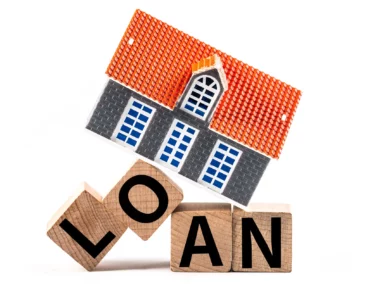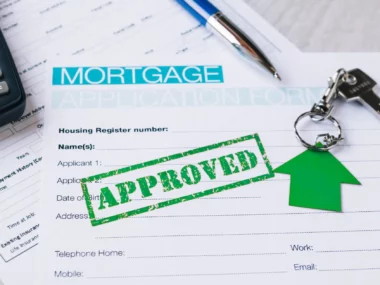Table of Contents
What You Need to Know to Break Your Mortgage. When you get a mortgage from a lender, you sign a contract agreeing to make monthly payments for a particular number of years until the loan is fully paid off.
The lender holds you to this contract and any changes that you propose regarding the contract is tantamount to breaking the mortgage.
There are numerous reasons why you as a borrower would want to break your mortgage, especially when it would benefit you greatly.
However, it is also important that you are aware of the consequences that come with this decision, so you can weigh the desired benefit against what it would cost you, and decide if this is the right move for you.
While you ponder that decision, let us take you through What You Need to Know to Break Your Mortgage so you can have enough information to help you make the right move.
What You Need to Know to Break Your Mortgage
What Does It Mean To Break A Mortgage?
Let’s begin by clarifying that breaking a mortgage doesn’t mean you stop making your monthly payments. It doesn’t mean you abandon your mortgage for one reason or the other.
Breaking a mortgage means changing the terms of your mortgage contract. It means altering the agreement that you made with your lender when you signed the contract.
For example, if you signed a five-year mortgage contract with your lender, and after three years, your financial status suddenly changed for the better, and you decide that you want to pay off your mortgage before the end of the agreed term, proposing to do so automatically translates into breaking your mortgage.
Due to the huge penalties that often come with breaking a mortgage, you should take your time to think about your reason for this move, so you don’t end up losing money, instead of saving it.
Also, it is important to note that not all mortgages can be broken. What this means is that, whether your mortgage can be broken or not depends on the contract that you signed with your lender. This is why you must read your contract thoroughly so you will know if breaking your mortgage is even an option.
Furthermore, the cost of breaking your mortgage depends on the type of mortgage that you have and the content of your mortgage contract.
Factors That Will Determine The Cost Of Breaking Your Mortgage Contract
Regardless of the reason you have for breaking your mortgage contract, below are the factors that will determine what costs you will have to pay:
- Open or closed mortgage.
- Variable or fixed-rate mortgage.
- Extra clauses that may restrict or prevent pre-payment options.
Opens vs. Closed Mortgages
If your mortgage is an open one, you will be allowed to do a lot of alterations such as raise your payments, pay out your mortgage, or change to another term whenever you want, without the fear of being penalized.
This means that you can break an open mortgage contract without receiving any penalty. However, the interest rates on open mortgages are high.
A closed mortgage on the other hand, although offers low rates, has many restrictions. It doesn’t give much opportunity to make adjustments to your payment schedule. Breaking a closed mortgage will get you penalized and cost you a lot of money.
Fixed-rate Mortgages vs. Variable-rate Mortgages
Fixed-rate mortgages are mortgages that come with an interest rate that doesn’t change throughout the mortgage term. When you break a fixed-rate mortgage, you will be charged what is known as interest rate differential (IRD).
The IRD is calculated by deducting today’s interest rate from your original mortgage rate, and the remainder is multiplied by the remaining amount on your mortgage. Whatever number you get, you will then have to pay the bigger amount between that number and whatever three months’ interest is.
Variable-rate mortgages, on the other hand, are mortgages that come with an interest rate that could change before the end of the mortgage term. Breaking a variable-rate mortgage only gets you a penalty of three months’ interest from your current mortgage. The penalty for breaking this type of mortgage is lower compared to a fixed-rate mortgage.
It is crucial to note that the penalty for breaking a mortgage, regardless of the type, varies from lender to lender.
Costs Involved In Breaking Your Mortgage
Depending on the type of mortgage you have and the contract you have signed with your lender, below are some of the fees that you may face if you break your mortgage:
1. Pre-payment penalty: When you break your mortgage, one of the fees that you will be charged is a prepayment penalty. It is a fee that your lender will charge to make up for the interest payments that they will lose thanks to your decision to pay off your mortgage early.
It is usually the highest fee charged, and the amount varies depending on your lender. It is usually applied in one of two ways – three months of interest or Interest Rate Differential (IRD).
Other fees include:
2. Administration fees.
3. Appraisal fees.
4. Reinvestment fees.
5. A mortgage discharge fee.
Common/Acceptable Reasons For Breaking Mortgages
1. The opportunity of a lower interest rate: If the current interest rates are lower compared to the one you were offered when you got your mortgage, refinancing your loan for one with a lower interest rate might help you save some money.
Once the interest rate is lowered, your monthly payments will be reduced. This is a good reason to break your mortgage and incur a mortgage penalty fee.
2. To purchase a new home: If you need a change of environment or you need to move to a smaller or a bigger home, you can sell the current house which you are yet to pay off (which means you will be breaking your mortgage), and use the proceeds to settle your lender. Ensure to discuss this move with your lender so they will give you a payoff quote before you begin the process.
3. Your financial status has changed: If your financial status changes, and you either need a shorter or longer period to make payments, breaking your mortgage becomes a reasonable option.
4. You need to use the equity in your home: As you continue making payments on your mortgage, and as the market price of your home rises, your equity increases.
In some cases, you may want to use some of the equity in your home to settle some debts or even to do some renovation, this is another acceptable reason to break your mortgage.
5. A change in your relationship status: Whether you found a new relationship or lost your current one, and you develop a sudden need to sell your home, breaking your mortgage becomes a logical idea.
It could also be that you are considering the idea of starting a family, and your present home doesn’t have enough space to accommodate the addition.
6. For investment purposes: If you come across an investment opportunity and you need to use the equity in your home to get the required funds, you can break your mortgage. It could also be that you need money to set up your business.
7. You need to change the names on the Title of the Mortgage: It is possible to add or remove names on the title of the mortgage, at a cost of course. However, if your lender doesn’t allow you to do this during the mortgage term, you might need to break your mortgage to get things done.
Mortgage Document Checklist 2024: What You Need Before Applying For A Mortgage In Canada
How To Avoid Huge Prepayment Penalty
Breaking your mortgage by proposing to pay it off earlier than the duration agreed with the lender is guaranteed to cost you a lot of money.
Naturally, you would expect that the lender would be thrilled that you want to make early repayment but that is not usually the case.
This is because your decision to do this would cost the lender thousands in interest rates which you would have had to pay for the remaining duration of the mortgage.
However, if you are thinking about prepayment but want to avoid the huge prepayment penalty, here are some things that you can do:
1. Have a good understanding of what your contract entails: Do a thorough perusal of your contract and understand all the options and terms included. Some lenders offer you certain options that let you pay down more of your mortgage every year.
They could let you do this with an annual lump sum payment or agree to raise your monthly payment amounts. You could take advantage of this clause by gradually reducing the amount left on your mortgage so that the prepayment penalty that you will be charged when you break your mortgage will be low.
2. Port Your Mortgage: If you plan to sell your current home and buy a new one, you could come to an understanding with your lender to port your current mortgage to your new home. This will help you avoid unnecessary prepayment costs.
3. Your home buyers could take over your mortgage: If the reason for breaking your mortgage is to sell your current home, your buyers could take over your mortgage, and you won’t have to break your contract. Not all lenders are open to this kind of deal but if your lender is, the buyers would be expected to qualify based on guidelines set by the lender.
Steps To Take When Trying To Break Your Mortgage In Canada
Breaking your mortgage is not a decision that should be rushed, considering the number of consequences that one would have to face.
However, after doing the calculation, if you realize that breaking your mortgage and taking a new one could save you money, below are steps you can take to get things done:
1. Take your time to shop around for lenders offering the best rates.
2. Get in touch with your current lender to discuss breaking your current contract and the fees that you would have to pay.
3. Find out if the new lender will charge you any fee for the new mortgage.
4. Go through the pre-approval process with the new lender.
5. If your application gets approved, the new lender will settle your old mortgage and issue you a new one.
Alternatives To Breaking Your Mortgage
To avoid prepayment penalties and some other consequences of breaking one’s mortgage, below are some alternatives to terminating your mortgage contract:
1. Use the equity in your home: Instead of breaking your mortgage, you can use the equity that you have built in your home over time to get a lower interest rate by opening a Home Equity Line of Credit (HELOC).
2. Renew your mortgage before the end of the term: You could also decide to renew your mortgage before the end of the agreed term and avoid paying a prepayment charge. This would of course depend on the kind of contract that you have.
3. Port your mortgage: Another alternative is to port your current mortgage from your old home to your new one. This way, the terms of the current mortgage will be transferred to your new home and you won’t have to pay a prepayment charge.
4. Bring in a co-borrower: If you are finding it difficult to keep up with your monthly mortgage payments, bringing in a co-borrower which could be a friend or a family member can be a way out. Their financial stability could help you manage your mortgage better.
The Upsides And Downsides Of Breaking Your Mortgage Term
Although breaking your mortgage poses many benefits if you handle it in the right manner, there are also certain harms that it can cause you. Therefore, you must be aware of the upsides and downsides of breaking a mortgage term.
Upsides of Breaking Your Mortgage Term
1. You could get a lower interest rate: You could break your mortgage and get refinance it with a lender who offers a lower interest rate. This will reduce the total amount of your mortgage payment.
2. Your monthly payments could reduce: If you break your mortgage and are able to get a new one with a better interest rate, it could end up reducing your monthly payments.
3. Extra cash for investment: If you can get your monthly payments lowered, you might end up with extra cash that you can use for certain investment opportunities.
4. You could get better mortgage terms: If new beneficial mortgage terms have been introduced since you first signed your contract, breaking your current mortgage can help you gain access to them.
Downsides Of Breaking Your Mortgage Term
1. Huge penalty fees: Breaking a mortgage in Canada comes with a penalty, regardless of the type. Breaking a variable-rate mortgage will fetch you a penalty of three months’ worth of interest while the penalty for breaking a fixed-rate mortgage will be decided by the lender using an interest-rate differential (IRD).
This is why you must crunch the numbers well, so you don’t end up paying more than you will be saving by breaking your mortgage.
2. You will be required to pass the mortgage stress test again: A mortgage stress test is used by Canadian lenders to determine if you are capable of making your monthly mortgage payments.
You will have to take this test again, and certain factors could make you fail it, which could lead to you not qualifying for a new mortgage.
3. You may have to pay a lot of fees: Several fees come with breaking your mortgage term which could end up costing you a lot of money. Fees such as administration fees, reinvestment fees, appraisal fees, and mortgage discharge fees can add up to a significant amount of money.
4. It could affect your credit score: Breaking a mortgage could require having to go through another hard credit inquiry, which could negatively affect your credit score.
5. You may lose some mortgage benefits: Whatever benefits your current mortgage offers will be lost once you break it, and you might not be able to get such benefits from your new mortgage.
At The End of it All:
Breaking a mortgage can be a great idea if it will save you money or benefit you in any other way. However, due to the stiff penalties that accompany the decision, you need to ask yourself if the benefit of this move outweighs the cost.
With that said, we hope we’ve been able to enlighten you on What You Need to Know to Break Your Mortgage.






